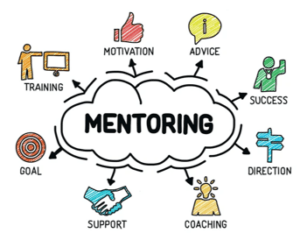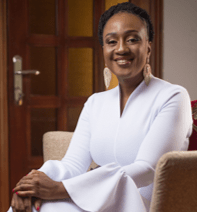According to a 2023 study by the International Labour Organization, women who participate in structured mentorship programs are 27% more likely to advance to senior leadership positions than those without mentors.
Yet in sub-Saharan Africa, only 5% of women in professional roles report having access to formal mentorship opportunities.
As we celebrate International Women’s Day, it’s crucial to examine how cross-cultural mentorship can bridge this gap and accelerate women’s leadership development across Africa.
Having traveled the journey from a young professional in Ghana to an executive coach working with leaders across continents, I’ve experienced firsthand how perspectives from different cultures can transform one’s leadership capabilities.
My own mentors have spanned from West African business pioneers to European leadership experts, each adding invaluable dimensions to my professional growth.
Cross-cultural mentorship—the intentional pairing of mentors and mentees across different cultural, national, or regional backgrounds—represents a powerful yet underutilized tool for accelerating women’s leadership development in Ghana and across Africa.
When implemented thoughtfully, these relationships can break through the geographic and cultural boundaries that have historically limited women’s professional advancement.
The African continent presents a complex picture of women’s leadership. While countries like Rwanda (with 61% women in parliament) and South Africa (with 46% women board representation in listed companies) show impressive statistics, many regions continue to struggle with significant gender disparities in leadership.
In Ghana specifically, women hold only 14.5% of parliamentary seats and approximately 25% of corporate managerial positions according to the Ghana Statistical Service’s 2023 report.
Women leaders across Africa face unique challenges including limited access to networks, persistent cultural biases regarding women’s roles, and often, the double burden of professional and domestic responsibilities. These challenges are compounded by educational disparities that still exist in many regions.

Yet, success stories abound. Leaders like Ngozi Okonjo-Iweala, Director-General of the World Trade Organization, and Arunma Oteh, former Vice President of the World Bank, demonstrate the heights African women can reach when supported by robust professional networks that transcend borders.
Cross-cultural mentorship extends beyond traditional mentoring by deliberately leveraging diverse worldviews and experiences. It encompasses relationships that cross national boundaries, ethnic traditions, or organizational cultures. At its core, effective cross-cultural mentorship requires mutual respect, cultural humility, and a commitment to learning in both directions.
McKinsey’s “Women Matter Africa” report highlights that companies practicing cross-cultural mentorship see 35% higher leadership development outcomes among women participants. This is partly because diverse perspectives challenge assumptions, broaden strategic thinking, and enhance adaptive leadership skills—all crucial for navigating today’s global business environment.
Both mentors and mentees benefit substantially from these relationships. Mentees gain broader perspectives, international networks, and exposure to diverse leadership styles. Mentors develop cultural intelligence, gain fresh insights from different contexts, and often report renewed purpose in their own leadership journey.
Despite its benefits, implementing cross-cultural mentorship faces significant challenges. Communication barriers extend beyond language to include different cultural norms around feedback, conflict resolution, and relationship-building. Technology access remains uneven across the continent, with reliable internet connections still unavailable in many areas.
Historical power dynamics and colonial legacies can create subtle imbalances in mentor-mentee relationships, particularly when pairing African professionals with those from former colonial powers. These dynamics require conscious navigation to ensure relationships remain empowering rather than replicating historical hierarchies.
Access and opportunity gaps persist, with the most connected and privileged women often having greater access to international mentorship opportunities. This risks widening rather than narrowing existing inequalities if programs aren’t deliberately inclusive.
Finally, navigating different business cultures presents practical challenges. From different approaches to time management to varying expectations around hierarchy and authority, cross-cultural mentorships require significant adaptation and flexibility from both parties.

4 Keys to Implementing Cross-Cultural Mentorship in Ghana and Africa
Create Intentional Connection Points
Successful cross-cultural mentorship requires regular, scheduled interaction. Establish a consistent meeting rhythm—whether monthly in-person meetings, regular phone calls, or occasional visits combined with written correspondence. For mentorships between Ghanaian professionals and international mentors, consider quarterly intensive sessions combined with monthly check-ins.
Begin each mentorship with a proper introduction that goes beyond professional credentials. Take time to share personal journeys, formative experiences, and professional challenges already overcome. This foundation builds the trust necessary for meaningful guidance.
Develop Clear Frameworks for Exchange
Establish clear expectations right from the start by creating a simple agreement that covers the mentorship timeframe, communication frequency, confidentiality boundaries, and how you’ll measure success together. In your first few conversations, focus on understanding each other’s professional contexts.
The mentor should learn about the mentee’s work environment, team dynamics, and organizational challenges, while the mentee should get a clear sense of the mentor’s relevant experience and expertise. A balanced conversation format helps keep things productive—begin by reviewing previous action items, then move on to current challenges, share insights or advice, and wrap up by agreeing on specific next steps.
After each key discussion, both mentor and mentee should document the insights they’ve gained and any commitments made, so there’s a clear reference point for the next meeting and a sense of continuity throughout the mentorship journey.
Embrace Global Perspectives
When mentoring across borders, focus on learning from each other’s experiences and viewpoints. Instead of framing it as navigating “differences,” highlight the unique strengths that each culture brings to the conversation. Clarify key terms and professional concepts together to ensure you’re aligned, and treat any moments of confusion as learning opportunities. The goal is to create a shared understanding that helps both mentor and mentee grow.
Foster Long-Term Community Building
Go beyond solving immediate challenges by developing transferable skills that can be applied in various professional settings. Encourage thoughtful networking—introduce the mentee to new contacts and clearly explain how each connection can help them grow.
Document achievements and milestones to show the impact of the mentorship, and inspire mentees to pay it forward by becoming mentors themselves. This creates a ripple effect, expanding the network of women leaders supporting each other across borders.
Cross-cultural mentorship represents a transformative opportunity for accelerating women’s leadership development across Africa. By connecting women leaders across borders, we create pathways for knowledge transfer, network expansion, and perspective broadening that can help overcome persistent barriers to women’s advancement.
The responsibility for implementing these connections extends across sectors. Individual leaders must step forward as both mentors and mentees. Organizations must institutionalize support for cross-cultural connections. Policymakers must create frameworks that incentivize and facilitate these relationships.
As we celebrate women all over the globe, let us envision a future where every emerging woman leader in Ghana and across Africa has access to mentorship relationships that transcend borders. The talent and potential of African women leaders is boundless—cross-cultural mentorship provides the connections needed to fully realize that potential.
By building bridges across cultures, we build pathways to leadership for the next generation of African women leaders.
Are you ready for TRANSFORMATION?
Dzigbordi Kwaku-Dosoo is a Ghanaian multi-disciplinary Business Leader,
Entrepreneur, Consultant, Certified High-Performance Coach (CHPCTM)
and global Speaker. She is the Founder and CEO of The DCG Consulting
Group.
She is the trusted coach to top executives, managers, teams, and
entrepreneurs helping them reach their highest level of performance through the integration of technical skills
with human (soft)skills for personal development and professional growth, a recipe for
success she has perfected over the years.
Her coaching, seminars and training has helped many organizations and individuals to
transform their image and impact, elevate their engagement and establish networks
leading to improved and inspired teams, growth and productivity.










